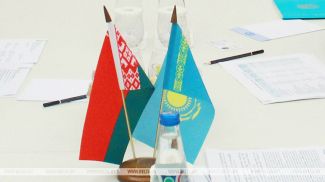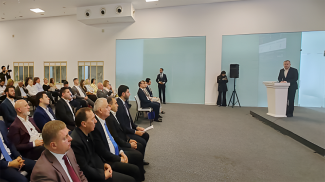MINSK, 30 June (BelTA) – Belarus and Russia will advance cooperation in low-carbon energy industry. Deputy Energy Minister Olga Prudnikova mentioned it at the panel session held as part of the 9th Forum of Regions of Belarus and Russia in Grodno to discuss Belarus-Russia cooperation in conditions of the new international climate agenda, BelTA has learned.
According to the Energy Ministry press service, mechanisms to adapt the Belarusian economy and the Russian one to global energy transition are already operating in the two countries. Comprehensive measures are being implemented to realize energy-saving technologies, advance digitization, reduce emission of pollutants into atmospheric air by stationary sources of energy thanks to the optimization of their work, develop renewable sources of energy, and other areas.
Olga Prudnikova mentioned that joint work with Russia to build the Belarusian nuclear power plant is of particular significance. The commissioning of the nuclear power plant is a good stimulus for the broad adoption of new technologies in industry, healthcare, science, and education. It also opens up new opportunities in the development of electric transport.
The deputy energy minister also mentioned hydrogen energy as a promising avenue for advancing Belarusian-Russian partnership. Representatives of interested government agencies and organizations of Belarus and Russia cooperate within the framework of a working group on hydrogen energy under the Industry Consultative Committee of the Eurasian Economic Commission. The joint work is aimed at studying the potential of hydrogen as part of a low-carbon energy system, Olga Prudnikova explained.
In her opinion, Belarus-Russia interaction in the context of realization of commitments on the global climate agenda and the enabling of conditions for realization of environmental protection projects should grow stronger.
As part of transition to a low-carbon energy industry Belarus intends to reduce greenhouse gas emissions of stationary sources of energy to 7 million tonnes per annum, reduce the share of natural gas in heating energy and electrical energy generation to 60% by late 2025. By the end of the five-year term Belarus intends to increase the share of renewable sources of energy in the total volume of fuel and energy resources up to 7% and save 310,000 tonnes of reference fuel.













